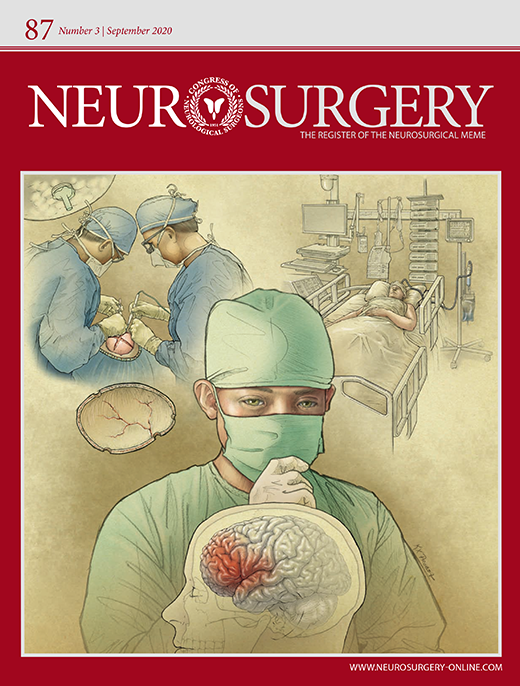Guidelines for the Management of Severe Traumatic Brain Injury: 2020 Update of the Decompressive Craniectomy Recommendations
Gregory W J Hawryluk, MD, PhD, FRCSC, Andres M Rubiano, MD, Annette M Totten, PhD, Cindy O’Reilly, BS, Jamie S Ullman, MD, Susan L Bratton, MD, Randall Chesnut, MD, Odette A Harris, MD, MPH, Niranjan Kissoon, MD, Lori Shutter, MD… Show moreNeurosurgery, Volume 87, Issue 3, September 2020, Pages 427–434, https://doi.org/10.1093/neuros/nyaa278Published: 06 August 2020 Article history
Abstract
When the fourth edition of the Brain Trauma Foundation’s Guidelines for the Management of Severe Traumatic Brain Injury were finalized in late 2016, it was known that the results of the RESCUEicp (Trial of Decompressive Craniectomy for Traumatic Intracranial Hypertension) randomized controlled trial of decompressive craniectomy would be public after the guidelines were released. The guideline authors decided to proceed with publication but to update the decompressive craniectomy recommendations later in the spirit of “living guidelines,” whereby topics are updated more frequently, and between new editions, when important new evidence is published. The update to the decompressive craniectomy chapter presented here integrates the findings of the RESCUEicp study as well as the recently published 12-mo outcome data from the DECRA (Decompressive Craniectomy in Patients With Severe Traumatic Brain Injury) trial. Incorporation of these publications into the body of evidence led to the generation of 3 new level-IIA recommendations; a fourth previously presented level-IIA recommendation remains valid and has been restated. To increase the utility of the recommendations, we added a new section entitled Incorporating the Evidence into Practice. This summary of expert opinion provides important context and addresses key issues for practitioners, which are intended to help the clinician utilize the available evidence and these recommendations.
The full guideline can be found at: https://braintrauma.org/guidelines/guidelines-for-the-management-of-severe-tbi-4th-ed#/.

